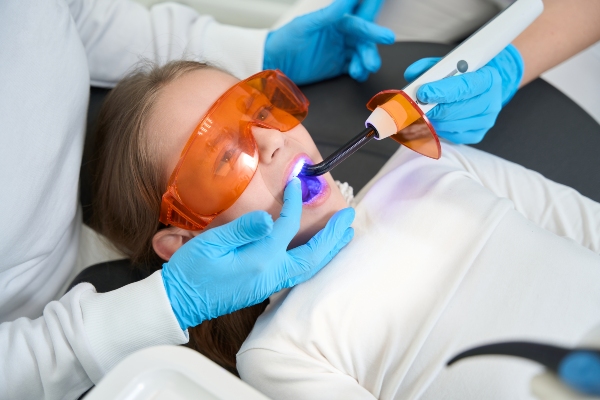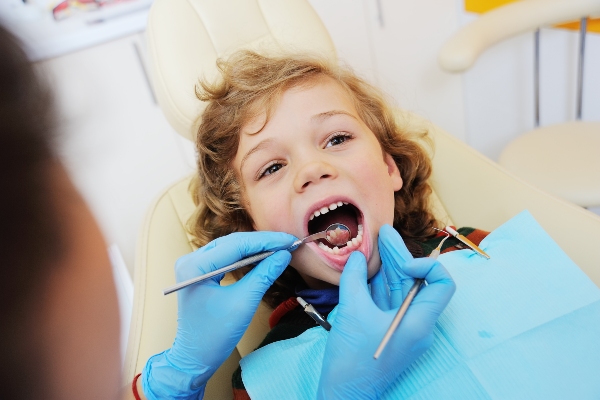4 Things to Know About a Root Canal in Pediatric Dentistry

Pediatric dentistry is an important branch of dentistry that focuses on treating young people. Pediatric dentists are dedicated to the field. These oral health care providers must complete the additional education necessary to provide the appropriate care to young patients. They can provide a range of services that can help your child, including root canal treatment.
Pediatric dentistry and root canal treatment
When the pediatric dentist tells parents that their child may need a root canal, it is understandable that parents will be worried. Parents usually have a lot of questions and concerns. However, learning more about root canal treatment may help them to make informed decisions. Here are 4 important things parents should know about a root canal in pediatric dentistry.
A root canal
A root canal is a procedure that helps remove diseased pulp from the tooth of a kid. The pulp is tissue that contains blood vessels as well as nerves that fill the tooth roots. Every root secures the child’s tooth to the gum and jawbone. A child may need a root canal if the tooth is either infected or damaged. Cavities, an abscess or an injury or accident can also lead to a root canal.
Root canals and children
Root canals can be recommended for both adults and children. The procedure can be done on both permanent teeth and baby teeth. Most times, root canals are recommended when damage is extensive, but there are many circumstances where this treatment option may be more ideal. Baby teeth are supposed to fall out on their own. But if a baby tooth comes out too soon, the kid may develop speech or bite problems. Fortunately, a root canal can help save the tooth and give it enough time to fall out when it is ready.
The root canal procedure
The dental provider will insert particular tools into the root canals. The tools will help remove the diseased pulp from the kid’s tooth with cleaning fluids. An X-ray may be taken to check for more pulp that should be removed. Any remaining pulp will then be cleaned from the root canal.
After all the pulp has been removed, the open root canal will be cleaned with germ-killing liquid. The root canal will then have to be dried before the filling is put inside the kid’s tooth root. The tooth might then be covered with a permanent or temporary crown. The root may be filled with a steroid paste to help relieve any swelling in the root canal.
After a root canal
It is not uncommon for a child to have some pain after the procedure. This is normal and it usually goes away in a few hours. Pain medicine or over-the-counter medicine may help with the pain. The parent should ask the dental provider when the child can eat and drink again. Parents should also ask about any vital instructions for caring for the child’s tooth after the root canal. If a temporary crown was placed, it will be replaced with a permanent crown after a particular time frame.
Takeaway
A root canal is a procedure that can help to remove bacteria and dying or dead nerve tissue from inside the tooth. It can be recommended in different cases including when the tooth is damaged or infected. If you think your child needs a root canal, discuss your concerns with the pediatric dentist. Make sure to ask any questions you have about the procedure.
Request an appointment here: https://www.hvkidsmiles.com or call Hudson Valley Pediatric Dentistry at (845) 363-4177 for an appointment in our Middletown office.
Check out what others are saying about our services on Yelp: Read our Yelp reviews.
Recent Posts
Dental fillings for kids restore the smile for years to come. Proper aftercare and consistent oral hygiene help to ensure your child gets the most out of their fillings. Thankfully, caring for these restorations is simple and straightforward, particularly with the help of a pediatric dentist.A dental filling is a dental restoration that “fills” cavities…
Dental fillings are a key part of protecting children’s oral health. When prevention efforts fail, this simple procedure stops cavities from doing further damage to dental health. Here, we take a closer look at the benefits of treating childhood tooth decay with dental fillings for kids.According to the Centers for Disease Control and Prevention (CDC),…
Cavities are a common dental health issue, and as kids learn to care for their teeth, they are often more prone to developing them. Dental fillings for kids can help avoid future oral health complications and protect their young smiles. Here are the basics of the treatment process that you should know as a parent…
Curious about dental fillings for kids? Read on to learn more. As your kid ages, you most likely have many questions about their overall health. Questions like "Are dental fillings for kids necessary?" or "What happens to baby teeth with nontreated cavities?" These are crucial questions to think about, and this article addresses them so…


